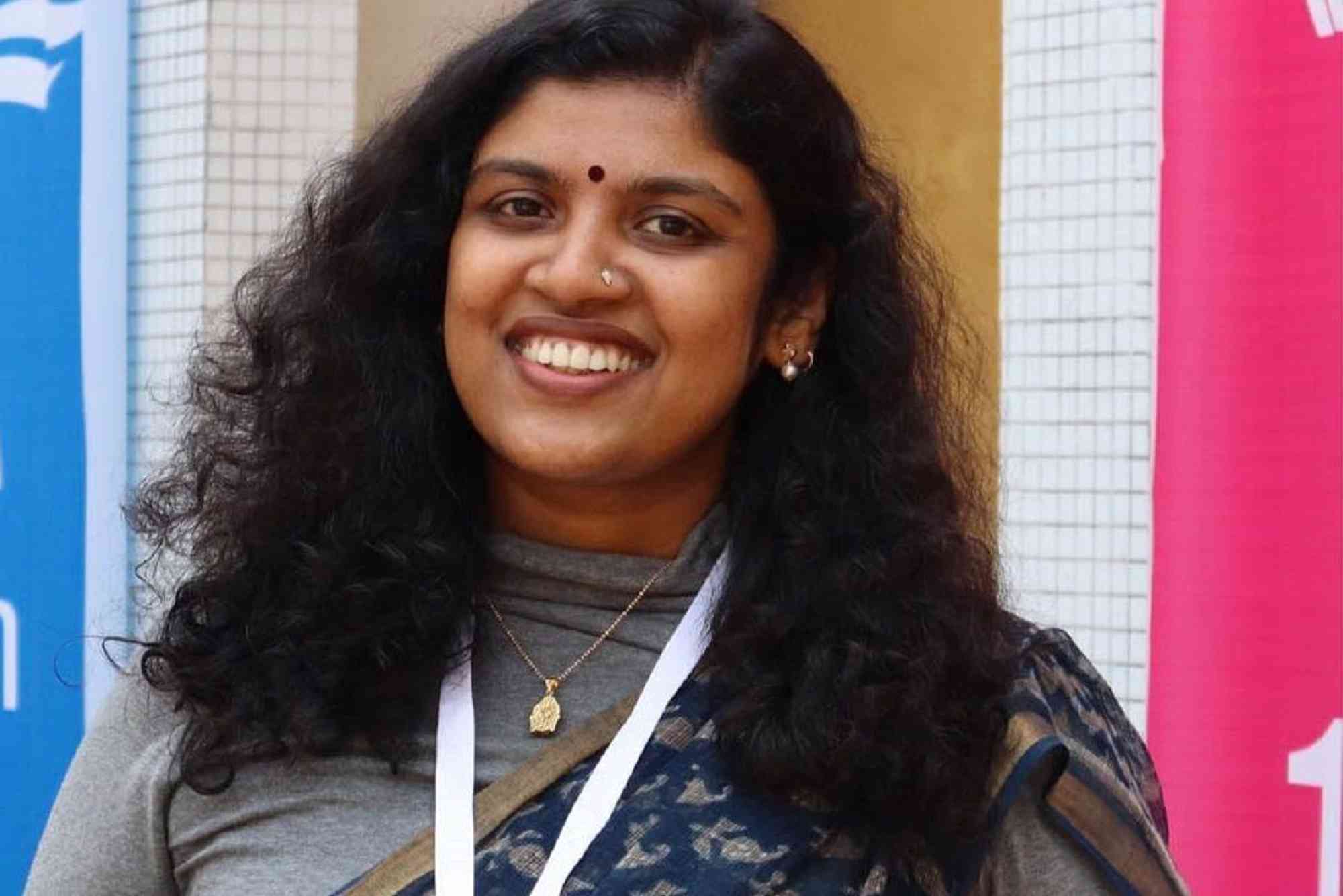Introduction
Chintha Jerome has emerged as a prominent voice in Kerala’s political and academic spheres. Known for her eloquence, clarity of thought, and unwavering stance on youth rights and women’s empowerment, she holds a unique position as both a scholar and a politician. This article dives deep into Chintha Jerome’s educational qualification, academic credentials, and political career, providing a comprehensive look at the milestones that shaped her trajectory.
The Rise of a Scholar-Activist
Chintha Jerome’s rise in public life has been marked by her dual commitment to education and political advocacy. A prolific writer, eloquent speaker, and vocal activist, she became well known in Kerala for her involvement in student politics, and later, through her leadership role in the Kerala State Youth Commission. Her academic and political qualifications have continually fueled her efforts to champion youth and women’s issues in the state. Understanding her educational background and political development helps in appreciating her intellectual approach to public service.
Chintha Jerome’s Educational Qualification
Chintha Jerome’s academic journey is as distinguished as her political career. Her deep involvement in literature and cultural studies set the tone for her public life. She holds a PhD in English Literature from the University of Kerala, where she completed her doctoral research on the feminist critique of postmodernist narratives in Malayalam literature. This scholarly work received attention for its original insights and contributed to the ongoing discussions on gender and representation in regional literature.
She began her academic path at St. Joseph’s College for Women, Alappuzha, where she earned her Bachelor’s degree in English Language and Literature. Her outstanding academic performance and leadership qualities were evident from the beginning. During her undergraduate years, she also actively participated in student debates, seminars, and literary events.
She pursued her Master’s degree in English Literature at the University of Kerala, where she further developed her academic interests and political activism. Chintha Jerome’s educational qualification became a foundation for her public communication style—firm, analytical, and deeply rooted in cultural context. Her academic writings, which include research papers and public essays, showcase her ability to connect theory with real-world social concerns.
Her decision to enter doctoral research was driven by her interest in understanding the intersection of literature and society. She used literature as a lens to critique and analyze the role of women in Malayalam cultural narratives. This expertise shaped her ability to communicate complex social issues in simple language, which is one of her key strengths in political discourse.
The Transition from Academia to Political Engagement
Chintha Jerome’s entry into political life was not accidental. Her involvement in student politics began during her university years when she became a prominent figure in the Students’ Federation of India (SFI), the student wing of the Communist Party of India (Marxist). Her oratory skills and sharp intellect quickly propelled her to the forefront of campus politics.
As an active leader of the SFI, she championed several student-centric initiatives. She advocated for better learning environments, women’s safety on campus, and student representation in administrative decisions. Her work resonated deeply with the youth, earning her a loyal following and wide recognition across Kerala.
Her dual identity as a scholar and political activist helped her stand out. Unlike many politicians who lack academic depth, Chintha Jerome brought intellectual clarity and research-driven analysis to political issues. Her ability to articulate youth problems in public forums was seen as a breath of fresh air in the political landscape.
Chintha Jerome and the Kerala State Youth Commission
One of the key turning points in Chintha Jerome’s political journey came with her appointment as Chairperson of the Kerala State Youth Commission in 2016. This role allowed her to channel her academic understanding and student activism into structured policymaking and youth engagement. She became the youngest ever to hold the position, signaling a shift towards more youth-inclusive governance.
As Chairperson, she focused on issues such as unemployment, mental health among youth, education reforms, and skill development. Under her leadership, the Youth Commission conducted interactive sessions across the state, where she listened to student concerns directly and addressed them through state mechanisms.
Her role also involved mediating between youth and various governmental departments, helping to resolve issues related to job grievances, harassment, and educational inequities. Her academic training, especially in understanding marginalized narratives, gave her the tools to approach these challenges with empathy and insight.
During her tenure, she also initiated awareness campaigns on social media literacy, gender equality, and cybercrime prevention. She regularly delivered speeches, wrote columns, and appeared on television debates, continuing her dual work as an educator and activist. Her efforts significantly boosted the visibility and relevance of the Youth Commission in the eyes of the public.
Publications and Public Presence
In addition to her political work, Chintha Jerome is a published author. Her writings often reflect her academic background in literature and her political convictions. She has penned essays that explore gender, cultural narratives, youth identity, and modern politics in Kerala. Through her writing, she bridges the gap between academic discourse and everyday experiences.
Her speeches and interviews have been widely shared, especially among students and young professionals. These communications demonstrate her ability to discuss complex issues like feminism, class, and democracy in accessible and relatable terms.
She is also known for her participation in literary festivals and cultural events, where she discusses the role of youth in reshaping the socio-political narrative. Her presence in such forums further blurs the line between intellectualism and activism.
Criticisms and Controversies
No political journey is without scrutiny, and Chintha Jerome has faced her share of criticism. Some detractors have questioned her political alignment and appointment to leadership positions at a relatively young age. Critics argue that her rise was accelerated by party loyalty. However, her defenders point to her academic credentials and activism as proof of merit.
She has also been trolled online for her outspoken views on women’s rights and social justice. Nonetheless, Chintha Jerome has consistently responded with composure, often using criticism as an opportunity to further the conversation on civic responsibility and respectful dialogue.
The Role of Education in Shaping Her Leadership
Chintha Jerome’s educational qualification is more than just a line on her resume. It has been instrumental in shaping her political vision. Her background in literature helps her understand cultural undercurrents and frame political messaging that resonates with the masses. Her academic research has trained her to think critically and communicate effectively.
She continues to emphasize the importance of education in all her public engagements. She advocates for inclusive education systems, curriculum reforms, and policies that promote equal opportunities for all, especially for marginalized communities.
Her educational experiences also guide her approach to governance—emphasizing research, consultation, and inclusivity. In a political climate often driven by slogans and populism, Chintha Jerome offers a more thoughtful, informed alternative.
A Scholar in the Political Arena
Chintha Jerome’s journey offers an inspiring example of how academic excellence can lead to impactful political engagement. Her story stands as proof that well-educated individuals can transform political spaces through knowledge, empathy, and activism. As a woman in politics, a scholar of literature, and a voice for the youth, she continues to influence Kerala’s public discourse in meaningful ways.
Understanding Chintha Jerome’s educational qualification is key to appreciating her intellectual depth and political clarity. Her rise reminds us that education and activism can go hand in hand in building a more informed and inclusive society.
(FAQs)
What is Chintha Jerome’s educational qualification?
Chintha Jerome holds a PhD in English Literature from the University of Kerala. She also has a Master’s and Bachelor’s degree in English Literature.
What was the topic of Chintha Jerome’s PhD?
Her PhD focused on the feminist critique of postmodern narratives in Malayalam literature, exploring how literature represents women’s experiences in contemporary Kerala.
How did Chintha Jerome enter politics?
She entered politics through the Students’ Federation of India (SFI) during her university years. Her leadership and oratory skills quickly made her a prominent figure in student politics.
What is Chintha Jerome’s current political role?
She served as the Chairperson of the Kerala State Youth Commission and continues to be an influential voice in youth and cultural politics in Kerala.
Has Chintha Jerome published any books?
Yes, she has published essays and academic papers related to gender, literature, and politics, contributing to both scholarly and public discourse.
Is Chintha Jerome affiliated with any political party?
Yes, she is associated with the Communist Party of India (Marxist) and has been active in the Students’ Federation of India (SFI), the party’s student wing.




